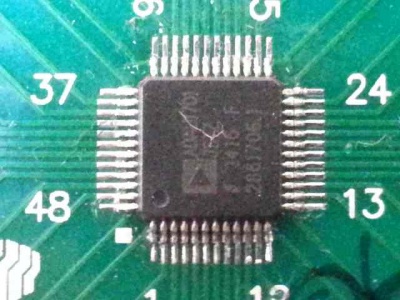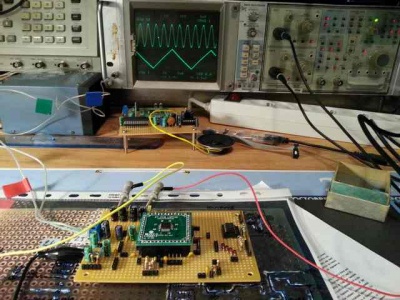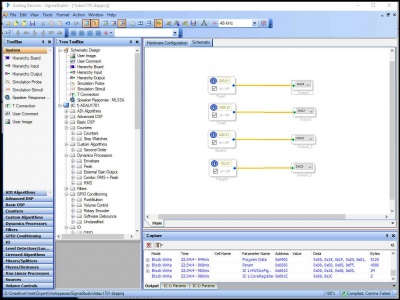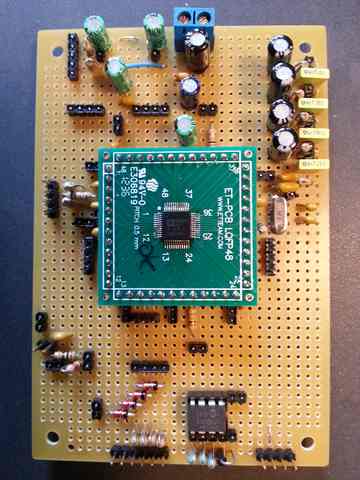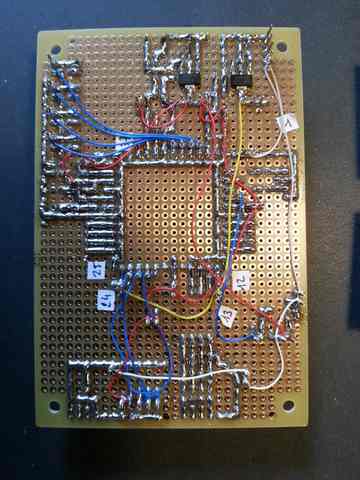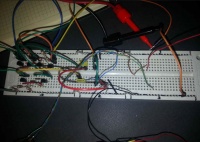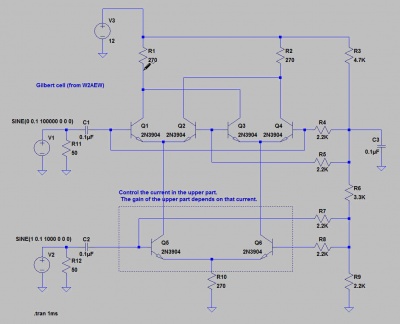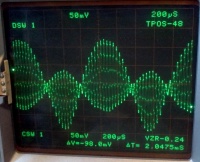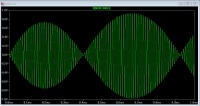Quoi de neuf 2016
From Eric
Experiments carried out in the past (from 2011) are described hereafter:
Contents |
April 2016
- Slight improvement of the ADAU1701 board. Some details are given here. A short (and useless) video is available here.
March 2016
- Yes! I have managed to solder my 0.5 pitch ADAU1701 using my brand new hot-air soldering station. The result is pretty good even though I had to remove a few solder bridges. Here it is:
- I have also completed the board that hosts the ADAU1701 DSP and... it works pretty well. Here is a picture of the DSP generating sinusoidal and triangular waveforms:
- Here is the board (a slightly simplified version of Elektor's design or a slightly more complex design of AD's datasheet):
- You will (soon) find a few information on the ADU1701 in a dedicated page.
February 2016
- I have bought a cheap frequency generator (Feeltech FY3200S) and a hot-air soldering station (Aoyue int 852):
- I have managed to solder a 0.8 TQFP64 chip (an Atmega 128) using hot air. The result is pretty nice event though I had to remove 4 bridges. This success came after a first trial (with the same type of chip) which ended badly: one dead Atmega and a lost TQFP adapter.
- The key to success was:
- to solder at 350°C (I guess that this is slightly higher than actually necessary)
- to place the chip on the board, stick it with some Kapton tape, and then
- to put as little as possible soldering paste. (I think that putting the paste once the chip is in place prevents it migrating behing the pins where it could create short circuits. Well, it could possibly be removed afterwards using alcohol or aceton...)
- to use a medium nozzle (i.e., not the smallest)
- to remove the remaining bridges between pins using some desoldering wick and a large soldering tip (and not my Hakko-clone with its tiny tip).
- Here is the result: not too bad... This was a test run before I receive my tiny ADAU1701 (with a 0.5 pitch).
It took me more time than when I use my soldering iron but the result is nicer.
January 2016
- After watching this very interesting video about the Gilbert cell, I have built the following mixer (the schematics comes from the video)
- As I have used non matched transistors, the mixing is not as symetric as it should be !
